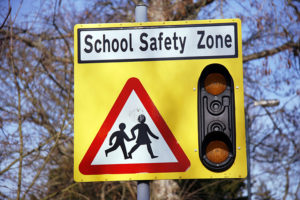A group of students at Scotland’s Harlow Academy recently partnered with local police and community organizations to send a powerful message about drugs, and they debuted their work in July at the Belmont Filmhouse in Aberdeen.

A group of students at Scotland’s Harlow Academy recently partnered with local police and community organizations to send a powerful message about the danger of illegal drugs, and they debuted their work in July at the Belmont Filmhouse in Aberdeen.
The teens spent weeks with police officials, the Aberdeen FC Community Trust, the Alcohol and Drugs Action charity and Station House Media Unit to create a seven minute fictional movie about the dangers and consequences of substance abuse, The Press and Journal reports.
The project was designed to educate students about the risks involved with illegal drugs, while also developing practical skills in video editing and film making. Officials hope to use the film in schools across the city to steer students toward positive life choices and offer ways they can avoid illegal drugs.
Thirteen-year-old Reece Main, who plays a drug dealer in the film, told the Press and Journal “it was a really fun project to do and we learned a lot about what can happen to you if you take drugs.”
“It was a lot of hard work but we all worked really hard on it together,” he said. “I hope it can help others find out about the dangers.”
Community policing team Inspector David Cowie told the news site he’s “hugely proud” of the Harlow students who participated.
“The work they’re doing is so important,” Cowie said. “The police and the schools are always putting out the message to steer clear of drug use, but when it’s a message delivered by your peers, I think there’s a much greater chance of pupils listening to what’s being said and learning important lessons.”
The police inspector also commended the proactive approach.
“If we can get a strong preventative message out to young people at this important point in their lives and help them to understand what can happen if you misuse substances like alcohol, drugs and tobacco, it can really make a big difference for the kids, local police teams and the local community.”
James Davison Hunter, sociologist and founder of the Institute for Advanced Studies in Culture, highlighted the importance of educating students about both the dangers risky behavior, and the bigger picture of why they should avoid it.
“For parents and other adults, the task of ‘saving our children’ means, in large part, telling children what they are being saved for,” Hunter wrote in “The Content of Their Character,” a summary of character formation in a wide variety of schools. The task of educating children means teaching them the larger designs that could give form and focus to their individual aspirations, so they can come to understand not only how to be good but why.”
Understanding the “why” involves a focus on what’s most important, and educators looking to help guide students towards “the good life” can find resources and lessons from the UK’s Jubilee Center for Character and Virtues.
One such lesson – “Beginning at the End” – encourages students to imagine looking back on their lives 70 to 80 years from now, and prompts them to ponder what they want to guide the journey, considering motivators like the pursuit of pleasure, wealth, status, power, knowledge and ethical living outlined in Aristotle’s “The Nicomachean Ethics.”



